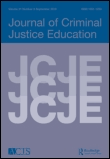
JOURNAL OF CRIMINAL JUSTICE EDUCATION
Scope & Guideline
Empowering Educators to Shape the Future of Criminal Justice
Introduction
Aims and Scopes
- Pedagogical Innovations:
The journal focuses on innovative teaching methodologies and strategies used in criminology and criminal justice education, including experiential learning, community-based projects, and the integration of technology such as virtual reality. - Interdisciplinary Approaches:
Research often incorporates interdisciplinary perspectives, examining the intersections of criminology with areas such as psychology, sociology, law, and public policy to foster a more comprehensive understanding of crime and justice. - Social Issues and Justice:
A critical examination of social issues, including race, class, gender, and mental health, is prevalent, emphasizing the importance of addressing systemic inequalities within criminal justice education and practice. - Research Methods and Evaluation:
The journal emphasizes the importance of research methods in criminology, advocating for robust evaluation practices that enhance the understanding of educational outcomes and the effectiveness of teaching strategies. - Mental Health and Well-being:
There is a notable focus on the mental health and well-being of students within the context of criminal justice education, reflecting a growing recognition of the psychological challenges faced by students in this field.
Trending and Emerging
- Mental Health in Education:
Recent publications emphasize the mental health and psychological well-being of students, reflecting a growing awareness of the emotional challenges faced by those studying criminal justice. - Diversity and Inclusion:
There is a significant increase in research addressing diversity, equity, and inclusion within criminal justice curricula, highlighting the importance of representing marginalized voices and perspectives. - Technology in Teaching:
The integration of technology, including virtual reality and gamification, is a prominent theme, showcasing innovative approaches to enhance engagement and learning outcomes in criminal justice education. - Experiential Learning:
A trend towards experiential learning methods, such as service-learning and community-based projects, is evident, indicating a preference for practical applications of criminological concepts. - Critical Pedagogy:
Emerging discussions around critical pedagogy and decolonizing criminology reflect a shift towards examining power structures and advocating for transformative educational practices.
Declining or Waning
- Traditional Theoretical Approaches:
There seems to be a decline in papers focusing solely on traditional criminological theories without integrating contemporary issues or pedagogical practices, indicating a shift towards more applied and practical approaches. - General Overviews of Criminal Justice:
Papers providing broad overviews of criminal justice systems or curricula without critical engagement or innovative perspectives are becoming less common, as the journal favors more in-depth analyses and specific case studies. - Static Pedagogical Practices:
Research on static or outdated pedagogical practices is waning, as the emphasis moves towards dynamic and interactive teaching methods that engage students more effectively. - Standardized Assessments in Education:
There is a noticeable decrease in discussions around traditional standardized assessments in criminal justice education, as educators seek more holistic and formative assessment strategies. - Focus on Law Enforcement Training:
While law enforcement training remains relevant, papers exclusively focused on traditional training methods without addressing broader social justice contexts are appearing less frequently.
Similar Journals

Educacao & Formacao
Advancing Knowledge for a Brighter TomorrowEducacao & Formacao is a pioneering academic journal published by the State University of Ceará within the Centro de Educação, focusing on the fields of education and teacher training. With an E-ISSN of 2448-3583, this journal has embraced the open access model since 2016, ensuring that high-quality research is freely accessible to educators, researchers, and practitioners globally. The journal serves as a vital platform for disseminating innovative research, critical analyses, and best practices in education, particularly within the Brazilian context and beyond. With its commitment to contributing to the discourse on education, Educacao & Formacao encourages submissions that advance knowledge and foster improvements in educational practices. The journal’s focus on accessibility and engagement makes it an invaluable resource for professionals and students eager to stay abreast of current trends and developments in education.
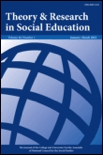
THEORY AND RESEARCH IN SOCIAL EDUCATION
Driving Excellence in Social Education ResearchTHEORY AND RESEARCH IN SOCIAL EDUCATION is a leading academic journal that publishes high-quality research on the intricacies of social education, aiming to bridge theory and practice in the field. Established in 1973 and renowned for its scholarly contributions, this journal is published by Routledge Journals, Taylor & Francis Ltd, offering an esteemed platform for educators, researchers, and policy-makers alike. With an impressive impact factor and ranking in the top quartile (Q1) in both the Education and Sociology and Political Science categories, it provides a highly regarded venue for the latest research and theoretical developments. The journal embraces a diverse scope encompassing critical issues, innovative methodologies, and pedagogical strategies in social education, essential for those seeking to deepen their understanding and influence in the field. Although it does not currently offer open access, the rigorous peer-review process ensures that the content remains of the highest quality. By contributing to this journal, researchers can engage with a wide audience, fostering academic dialogue and practical applications that advance social educational practices.

JOURNAL OF QUANTITATIVE CRIMINOLOGY
Transforming Data into Actionable Forensic KnowledgeJOURNAL OF QUANTITATIVE CRIMINOLOGY, published by Springer/Plenum Publishers, serves as a premier outlet for cutting-edge research in the fields of law and forensic medicine. With an impressive impact factor and ranked in the top quartile (Q1) of both Law and Pathology and Forensic Medicine categories in 2023, this journal excels in providing empirical analyses and quantitative assessments that address critical issues in criminological research. Since its inception in 1985, the journal has maintained a reputation for excellence, evidenced by its high standing in Scopus rankings—21st out of 1025 in Social Sciences (Law) and 23rd out of 208 in Medicine (Pathology and Forensic Medicine). Although currently not an open access publication, it offers several subscription-based access options to reach a wide array of academics and professionals dedicated to the advancement of criminological and forensic inquiries. Researchers, professionals, and students will find the JOURNAL OF QUANTITATIVE CRIMINOLOGY an invaluable resource, as it fosters interdisciplinary collaboration and methodological rigor in understanding crime and criminal behavior.

JOURNAL OF CRIMINAL LAW & CRIMINOLOGY
Unraveling the Complexities of Crime and JusticeJournal of Criminal Law & Criminology, published by Northwestern University, is a premier scholarly journal dedicated to advancing the understanding of criminal law and criminological theories. Established in 1974, it has a strong history of publishing rigorous empirical research and critical analyses, contributing significantly to the discourse in legal and criminal justice studies. With an impressive impact factor and recognized as a Q1 journal in Law, it ranks favorably within the Scopus database, positioned in the top 25% of its category. This journal is essential for academics, legal practitioners, and students seeking insightful perspectives and developments in contemporary criminal justice issues. Although not open access, it provides a wealth of resources and discussions, making it an invaluable asset for anyone engaged in the study of law and criminology.
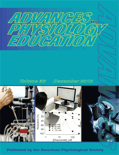
ADVANCES IN PHYSIOLOGY EDUCATION
Empowering Educators, Enriching MindsADVANCES IN PHYSIOLOGY EDUCATION, published by the American Physiological Society, is a leading journal dedicated to the field of physiology education, with a commitment to advancing teaching practices and pedagogical strategies in this vital discipline. Established in 1998, the journal has consistently provided a platform for original research and discussion, fostering the improvement of educational methodologies. With an impressive impact factor and ranked in Q2 for Education and Q3 for Physiology, it reflects a robust academic influence within the research community. The journal ranks #458 out of 1543 in Social Sciences - Education and #130 out of 193 in Biochemistry, Genetics, and Molecular Biology - Physiology according to Scopus, highlighting its critical role in shaping physiology education. While it operates on a subscription model, its focus remains on promoting innovative education practices that benefit both educators and students alike. This journal is essential reading for anyone looking to enhance their understanding of physiology teaching and learning.

Cukurova University Faculty of Education Journal
Exploring Critical Issues in Education with Scholarly PrecisionThe Cukurova University Faculty of Education Journal, published by CUKUROVA UNIV, serves as a vital platform for scholarly discourse in the field of education. With the ISSN 1302-9967, this journal is dedicated to publishing rigorous research and innovative studies that address critical issues within educational theory and practice. Though the publication operates on a closed-access model, it remains committed to enhancing accessibility by providing high-quality, peer-reviewed content that contributes to the body of knowledge in education. Situated in Adana, Turkiye, the journal aims to foster collaboration among researchers, educators, and policymakers, ultimately enriching the educational landscape. As an essential resource for those invested in advancing pedagogical methods and educational policies, the Cukurova University Faculty of Education Journal is poised to make significant contributions in its field.

Journal of Criminological Research Policy and Practice
Exploring Innovative Practices in Crime ResearchJournal of Criminological Research Policy and Practice is a pioneering platform dedicated to the exploration and dissemination of knowledge in the interdisciplinary field of criminology. Published by Emerald Group Publishing Ltd, this journal features high-quality research that addresses contemporary issues and innovative practices in areas such as law, public administration, and social psychology. With an ISSN of 2056-3841 and an E-ISSN of 2056-385X, the journal has garnered a notable presence in the academic community, showcasing a Q3 ranking in Law and Sociology & Political Science as of 2023. The journal provides valuable insights for researchers and practitioners alike, advancing the discourse on criminological policy and its implications for society. It serves as an essential resource for those invested in enhancing social justice, informing policy-making, and understanding the complexities of crime within a broader social context. Encompassing research from 2015 to the present and extending into 2024, the journal stands as a critical reference point for future studies and professional practice in criminology.
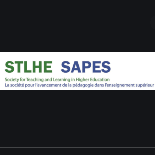
Canadian Journal for the Scholarship of Teaching and Learning
Exploring Evidence-Based Strategies for Effective LearningThe Canadian Journal for the Scholarship of Teaching and Learning (CJSoTL) is a premier open-access journal dedicated to advancing research and discourse in the field of teaching and learning within higher education. Published by SOC TEACHING & LEARNING HIGHER EDUCATION, CJSoTL serves as a vital resource for educators, researchers, and students alike, promoting evidence-based practices and scholarship in higher education pedagogy. Since its inception in 2010, the journal has provided an inclusive platform for innovative research, case studies, and pedagogical strategies that enhance teaching effectiveness and student learning outcomes. Although specific metrics such as H-index and Scopus ranks are currently unlisted, the journal is committed to fostering a community of practice among scholars dedicated to improving teaching and learning environments. With its open-access policy, CJSoTL ensures that valuable knowledge is freely available, aligning with contemporary trends in academic dissemination and accessibility, thus making significant contributions to the scholarship of teaching and learning in Canada and beyond.
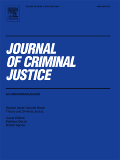
JOURNAL OF CRIMINAL JUSTICE
Innovating solutions for contemporary justice challenges.The JOURNAL OF CRIMINAL JUSTICE, published by Elsevier, stands at the forefront of interdisciplinary research at the nexus of law, psychology, and sociology. With an impressive impact factor and consistently ranking in the Q1 category across multiple disciplines, including Applied Psychology and Law, this journal serves as a vital platform for exploring critical issues in criminal justice policy, behavior, and system effectiveness. Since its inception in 1973, the journal has evolved its scope to encompass contemporary challenges and innovative responses within the field. Researchers, professionals, and students can benefit from access to high-quality, peer-reviewed articles that not only reflect current trends but also drive future discourse. Though currently not open access, the journal's rigorous standards ensure that all published works contribute significantly to advancing knowledge and practice in criminal justice and related areas.

Journal of Experimental Criminology
Exploring Empirical Solutions for JusticeThe Journal of Experimental Criminology, published by Springer, stands as a beacon of innovation within the realm of criminology and legal studies. With an ISSN of 1573-3750 and E-ISSN 1572-8315, this esteemed journal, based in the Netherlands, explores groundbreaking research and experimental approaches to understanding criminal behavior and justice systems. It proudly resides in the elite Q1 quartile of the law category for 2023, ranking an impressive #37 out of 1025 in Scopus within the Social Sciences _ Law domains, placing it in the 96th percentile among its peers. The journal's objectives are aimed at disseminating high-quality empirical research that informs policy and practice, making it an essential resource for scholars, practitioners, and students who strive to enhance the efficacy of crime prevention and criminal justice interventions. With coverage spanning from 2005 to 2024, the Journal of Experimental Criminology invites contributors from diverse backgrounds to engage in the interdisciplinary dialogue that shapes the future of criminological research.